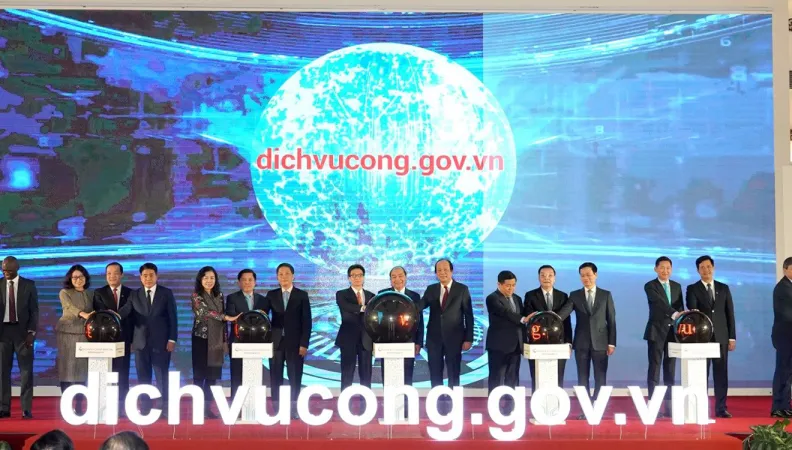Share the page
E-Governance: French Expertise Mobilized in Vietnam
Published on

Moving government business into the digital realm has been a long-standing priority for Vietnam. Since 2015, the government has stepped up its modernization and digitization efforts in an attempt to improve government services. Along with Expertise France, Agence Française de Développement (AFD) supports the Vietnamese authorities in making this happen.
With a fast-growing population – rising from 85 million inhabitants in 2006 to more than 96 million in 2019 – Vietnam has been in need of a robust IT network to support its transition to a modern, digital administration. The country made a decisive step in this direction last December, when it launched a national portal for public services.
AFD is providing the financial backing for technical assistance supplied by Expertise France, which is helping design the reforms necessary for the establishment of an efficient electronic administration.
Progressive and Evolutionary Implementation
The portal will complement and streamline existing public services: “This tool will be at the service of the people and companies to facilitate their procedures,” says Dr. Phan, Director of the Government Office's Administrative Procedures Control Department.
Physical administration centers will remain open, especially for people who are unwilling or unable to go online. “In addition to the obstacles presented by equipment and accessibility, we must take into account the distrust that a part of the population has regarding online transactions and the difficulty of informing remote populations about this new platform,” says Dr. Phan. "We are therefore going to install it gradually, while maintaining traditional systems.”
Improvements will continue to be made to the portal, with an eye to attracting more users online. “There will be regular updates to improve the functionality and quality of the information provided, as well as to optimize and personalize user experience.”
Currently, the portal has been designed to accommodate 500,000 visits per day and allows for 40,000 simultaneous connections to the system. The goal is to increase this capacity to 2,500,000 daily visits and 200,000 simultaneous connections by 2023.
Mobilization of French Expertise
French online services have served as models for new e-government systems in Vietnam, such as the service-public.fr portal and FranceConnect, a French digital identity management and electronic authentication solution.
A group of French experts worked in close collaboration with the Vietnamese government for several months to adapt this model for Vietnam: “During the exchanges that we had, we tried to take Vietnam's specific conditions into account as much as possible in order to give the best possible advice,” says Hervé Le Bars, an e-governance expert at Expertise France.
“France's e-government was developed over a long period of time; we wish to share what we have learnt from our experience with our Vietnamese counterparts.”
Other subjects were also covered in the exchange with French experts: “We received valuable support regarding the implementation of a legislative framework, for example on the drafting of standards for online services…and even recommendations on personal data protection regulations,” says Dr. Phan.
Circular Innovation
It is a fruitful, ongoing exchange, according to Hervé Le Bars, who thinks the Vietnamese system could itself be a model in a few years: “This experience was very enriching for French experts, who discovered new methods for set up electronic administration. We believe that Vietnamese e-government experts will certainly be at the forefront of certain themes in two to three years, and could share their solutions and experience with other countries, including France.”
